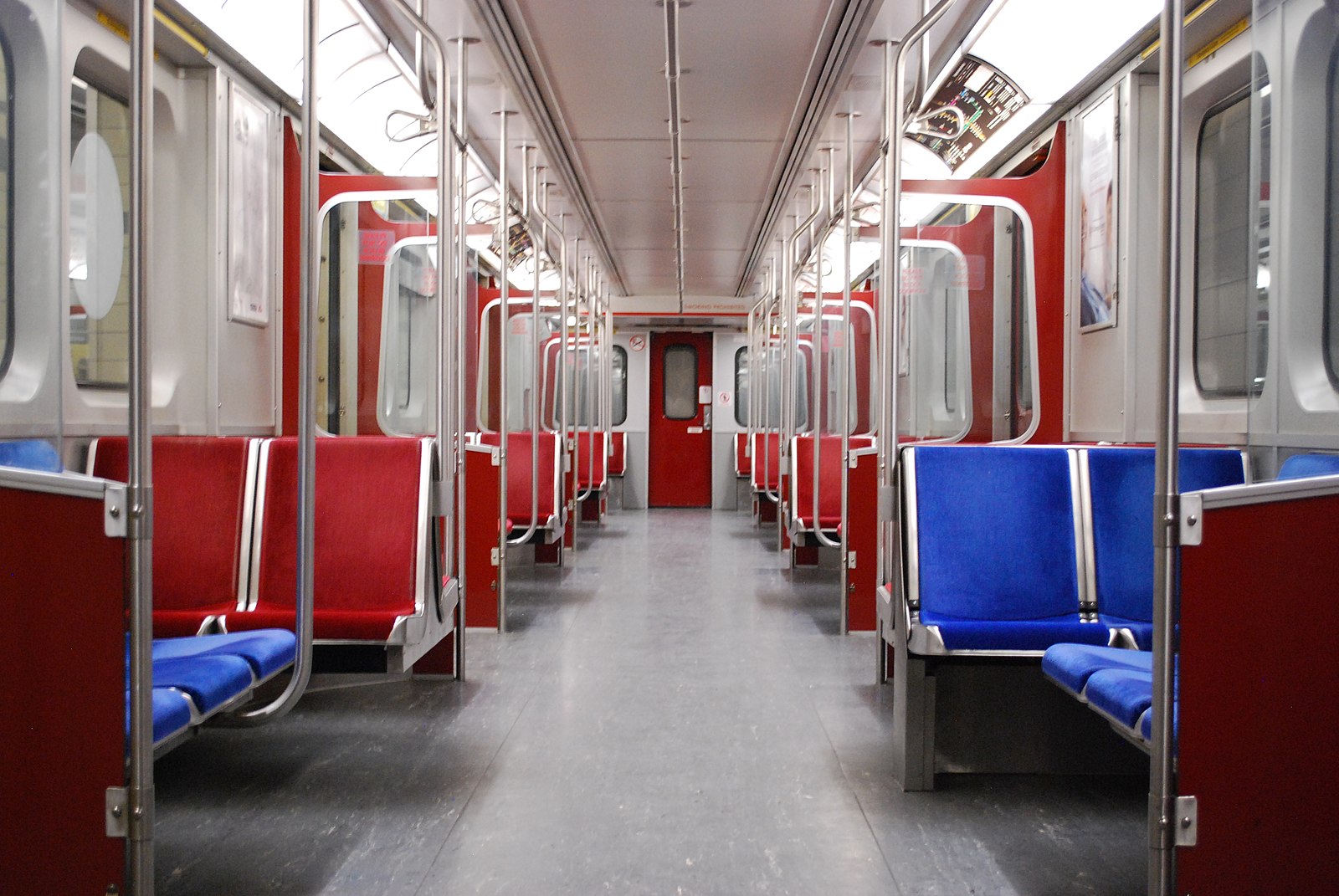Senate Republicans have released a new COVID-19 relief bill that allocates billions of dollars to air travel, but leaves zero dollars for the public transit systems that experts say are getting essential employees to work — and keeping our entire economy afloat.
The Senate Republicans' Health, Economic Assistance, Liability protection and Schools (HEALS) Act allots $10 billion for the Department of Transportation, but the majority of it will go to fund air travel service in rural communities, administrative costs related to air traffic control, and bafflingly, airport improvement.
Airplanes, of course, aren't how the vast majority of Americans get to work every day — but the transportation industries that essential employees do use to reach their jobs were roundly ignored by Republican lawmakers, despite statements from leaders like Ted Cruz, who stressed that the Senate has "got to get Americans back to work." New York's MTA alone averaged 5.5 million riders per day before COVID-19, compared to just 2.7 million people who take commercial flights in and out of U.S. airports.
Those disparities are even more stark during a pandemic, when safe, reliable public transportation is particularly crucial to keeping society going — because crucial workers rely on it to reach their jobs. A stunning 92 percent of COVID-era mass transit riders are employees in essential industries, according to data from Transit App, but the Senate proposal grants no aid to the agencies that have been struggling to keep the trains and buses running for those workers, even in the midst of historic farebox crashes.
Surface transportation would also get nothing under the HEALS act — which some advocates argue is a painful but necessary correction for many segments of our long-overbuilt national highway system, but a dangerous oversight in other communities whose highly-trafficked roads and bridges have fallen into dangerous disrepair. And it also leaves out urgent and inexpensive improvements to walking and biking infrastructure, in an era when both modes are booming — and too often, crowding vulnerable road users onto insufficient sidewalks and bike lanes, if they get such protected infrastructure at all.
If the Feds can allocate money for F-35 fighter jets in the #HEALSAct, shouldn't we be able to also run bus service to get seniors to doctors appts and food service workers to grocery stores? Please fix this bill and allocate money to public transit. #rescueriders #ClimateChange
— Sarah Meyer (@SarahMeyerDC) July 28, 2020
The HEALS act was met with widespread outrage by sustainable transportation activists, as well as by anyone who recognizes the essential role sustainable transportation plays in sustaining American life.
"[Public transportation] operations have enabled our economy to stay alive," wrote 24 Senate Democrats in an open letter to Senate leaders earlier his month that was also applauded by many Democrats in Congress. "But they have come with massive increases in costs while revenues have fallen...We must act swiftly to preserve public transit options for Americans and keep our systems safe and healthy."
And in less car-dependent communities, the Senate's proposal wouldn't just disadvantage the essential group of low-paid workers who stock our grocery stores and staff our hospitals. It would cut off transportation for virtually everyone — consumer and worker alike.
"[New York City's] MTA riders — 40 percent of all transit users in America — are counting on New York’s powerful Congressional delegation to keep the buses and trains running," said Reinvent Albany Senior Research Analyst Rachael Fauss. "Reinvent Albany applauds our Senators and Representatives fighting for New York in Washington.”
Advocates also quashed the suggestion that transit-reliant cities could simply hike fares on disproportionately low-income riders to plug in the fiscal gap.
"Fare hikes cannot balance New York's public transit budget," Riders Alliance Policy spokesman Danny Pearlstein said. "With ridership low due to COVID, higher fares would drive even more people off public transit, worsening its fiscal situation. A transit death spiral in transit-dependent New York would tank our recovery and drag the national economy down with us."
In May, congressional Democrats passed a coronavirus relief plan which offered far more to the transportation sector, but the Senate declared it dead on arrival. The Health and Economic Recovery Omnibus Emergency Solutions Act was an imperfect bill that proposed just $16 billion for transit — half of what the industry says it needs to survive to 2021 — while also promising $15 billion for the Federal Highway Administration to distribute to state departments of transportation for roads, with few guardrails on how the money could be spent. But at least it offered sustainable transportation users something — and acknowledged just how many underserved communities will struggle to reach essential services like hospitals without it.
"Interestingly, the Senate recognized in the HEALS Act the importance of keeping airports operating through the crisis, but not passenger rail,” said John Robert Smith, chairman of Transportation for America. “However, many in small town America still rely on intercity rail to get to hospitals and essential services. It is irresponsible to leave many people in small towns and rural areas disconnected from Amtrak and other passenger rail services at this precarious time.”
Both House Speaker Nancy Pelosi and Senate minority leader Chuck Schumer have already signaled that they plan to challenge some provisions of the bill, but have not specifically said they will fight for more funding for sustainable transit.
Here's how to contact your government representatives to demand more for the most important elements of our transportation network.






